Paul’s journey began inauspiciously, with a sudden onset of illness that would forever alter the course of his life.
At six years old, he ran into his family home in a suburb of Dallas, Texas, complaining of feeling unwell. Little did he know that this seemingly innocuous moment would mark the beginning of a relentless struggle against the debilitating effects of polio.
A Fateful Encounter
The day Paul fell ill, his concerned mother’s reaction mirrored the shock and fear felt by countless parents during the polio epidemic. “Oh my God, not my son,” she exclaimed, encapsulating the anguish of a parent faced with the specter of a crippling disease.
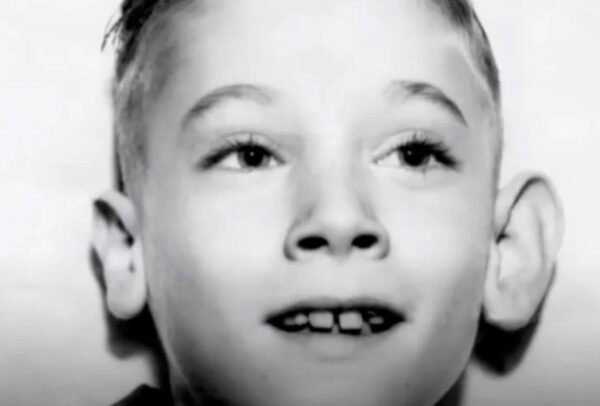
Following doctor’s orders, he spent the next several days in bed recovering, but the boy clearly had polio, and he was not getting better.
Despite his parents’ frantic efforts and the care of doctors, Paul’s condition deteriorated rapidly. Within days, he found himself robbed of the ability to swallow, breathe, or move—a prisoner in his own body, ravaged by the merciless grip of polio.
(Before vaccines were available for polio, more than 15,000 people were paralyzed from the virus!)
Just when all seemed lost, a glimmer of hope emerged in the form of a second opinion.
Another doctor intervened, performing a life-saving tracheotomy that granted Paul a reprieve from the clutches of death. Thus began his symbiotic relationship with the iron lung, a machine that would become both his lifeline and his prison.
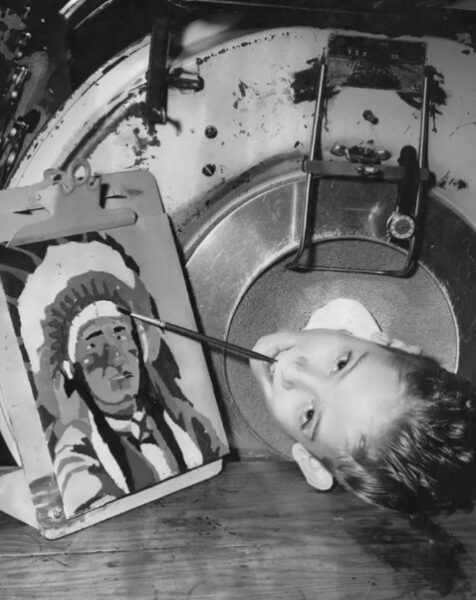
When Paul woke up after the operation, he was among several rows of children also encased in iron lungs.
”I didn’t know what had happened. I had all kinds of imaginings, like I’d died. I kept asking myself: Is this what death is? Is this a coffin? Or have I gone to some undesirable place?” the Texas native told As It Happens host Carol Off in 2017.
He couldn’t speak, making the whole event even more terrifying.
“I tried to move, but I couldn’t move. Not even a finger. I tried to touch something to figure it out, but I never could. So it was pretty strange.”
Life Inside the Machine: A Test of Endurance
For Paul, existence within the confines of the iron lung was a surreal odyssey marked by isolation, uncertainty, and unyielding resolve. Cut off from the outside world, he grappled with questions of mortality and purpose, all while clinging to the fragile thread of hope that sustained him.
Immersed in a sea of mechanical whirs and rhythmic pulses, Paul’s existence became synonymous with the rhythmic ebb and flow of the iron lung. Cut off from the nuances of human interaction, he grappled with profound isolation, longing for a semblance of normalcy amidst the sterile confines of his metallic prison.
Despite the myriad challenges he faced, Paul refused to succumb to despair. Buoyed by an indomitable spirit and unwavering faith, he embarked on a journey of self-discovery and resilience, determined to defy the odds stacked against him.
In the grim landscape of 1952 America, nearly 58,000 individuals, predominantly children, fell victim to the virus. Tragically, among them, 3,145 succumbed to its ravages.
“As far as the eye could see, rows upon rows of iron lungs, each housing a child,” Paul recounted, as documented by The Guardian.
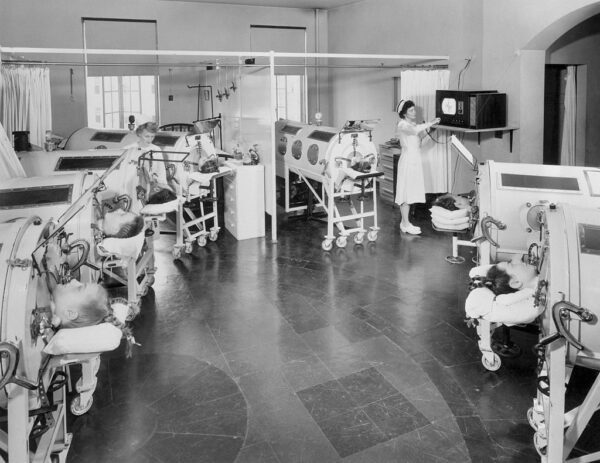
Despite the overwhelming despair that permeated those hospital corridors, Paul remained resolute, while some may have given up their will to live.
He would hear doctors say, ”He’s going to die today” or “He shouldn’t be alive” whenever they passed by him, and he wanted to prove them wrong.
Triumph over Adversity: A Journey of Redemption
Paul’s liberation from the iron lung marked the beginning of a new chapter in his life—one defined by grit, tenacity, and an unshakeable commitment to realizing his dreams.
In 1954 he was discharged from the hospital, but he quickly learned his life was drastically different than before.
“People didn’t like me very much back then,” he said during a video interview in 2021. “I felt like they were uncomfortable around me.”
With the aid of dedicated therapists and unwavering determination, Paul embarked on a grueling regimen of rehabilitation, reclaiming lost mobility and independence one painstaking step at a time.
With the invaluable support of his therapist, Mrs. Sullivan, who diligently visited him twice weekly, Paul’s life gradually began to take a turn for the better. Mrs. Sullivan struck a bargain with him: if he could master the technique of “frog-breathing”—a method involving trapping air in the mouth by flattening the tongue and opening the throat—without the aid of the iron lung for three minutes, she would reward him with a puppy.
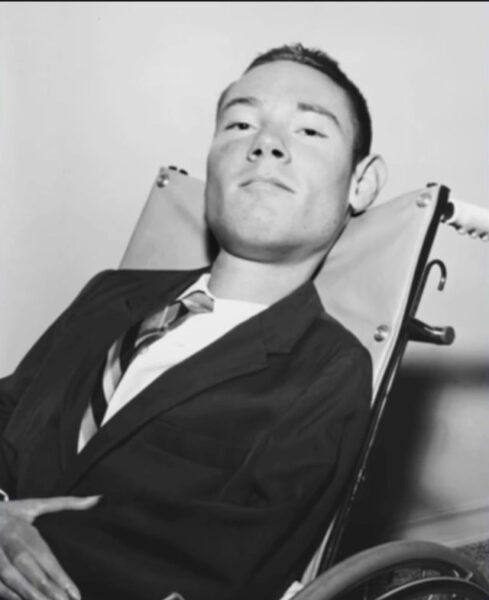
Though arduous, Paul’s relentless efforts bore fruit. Within a year, he found himself spending increasingly longer periods outside the confines of the iron lung, a testament to his unwavering determination and resilience.
At the age of 21, Paul achieved a groundbreaking milestone: becoming the first person to graduate from a Dallas high school—earning honors, no less—without ever physically attending class. Undeterred by the skepticism of admissions officers, who cited his physical condition and lack of vaccination, Paul embarked on a relentless pursuit of higher education.
Despite facing numerous rejections, Paul’s tenacity ultimately paid off when he gained acceptance to Southern Methodist University. However, his admission came with two stipulations: he must receive the polio vaccine, and a fraternity would assume responsibility for his well-being.
Undeterred by these conditions, Paul seized the opportunity with gusto. He thrived at Southern Methodist University, laying the foundation for a distinguished academic career. Buoyed by his success, he set his sights even higher, enrolling in law school at the esteemed University of Texas at Austin.
After passing the bar examination with flying colors, Paul embarked on a fulfilling career as a lawyer in the bustling Dallas-Fort Worth area. Despite the myriad obstacles he encountered along the way, Paul’s unwavering determination and indomitable spirit propelled him to triumph against all odds.
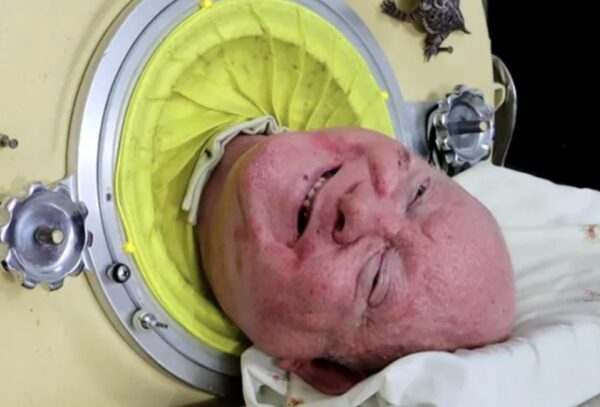
Legal Career and Literary Pursuits
Armed with an unwavering sense of purpose, Paul embarked on a distinguished legal career, earning accolades for his courtroom prowess and unwavering commitment to justice.
In addition to his legal endeavors, he pursued a passion for writing, penning a memoir that captured the essence of his remarkable journey with poignancy and grace.
According to a Gizmodo, Paul was believed to be one of the last people who lived in the near-obsolete machine. The 76-year-old was confined to his old iron lung around the clock and has spent much of his life in a can.
”I have travelled with it — put it in a truck, took it with me. I’ve gone to college with it, lived in a dorm. That freaked everybody out,” he said.
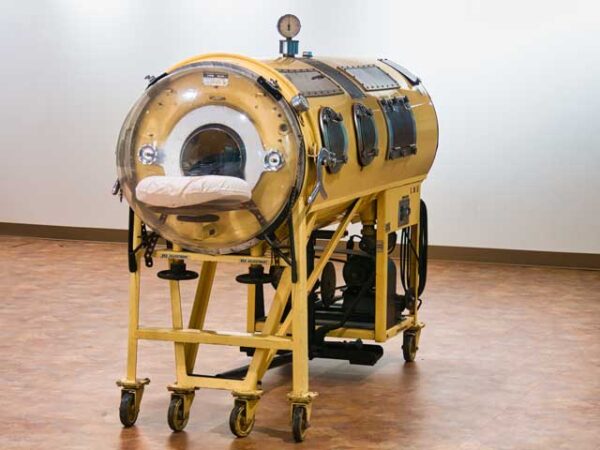
As Paul looked to the future with unwavering optimism and boundless enthusiasm, he remained a steadfast symbol of hope and resilience in a world fraught with uncertainty and adversity.
“I wanted to accomplish the things I was told I couldn’t accomplish,” he said, “and to achieve the dreams I dreamed.”
Since 1979, the United States has successfully eradicated polio, marking a significant triumph over a once-devastating disease.
Paul’s remarkable journey serves as a beacon of inspiration for us all. Against seemingly insurmountable odds, he has crafted a life defined by courage, resilience, and unwavering determination—a story that deserves to be shared far and wide.
His unwavering resolve underscores a powerful truth: the only limits that truly constrain us are those we impose upon ourselves.
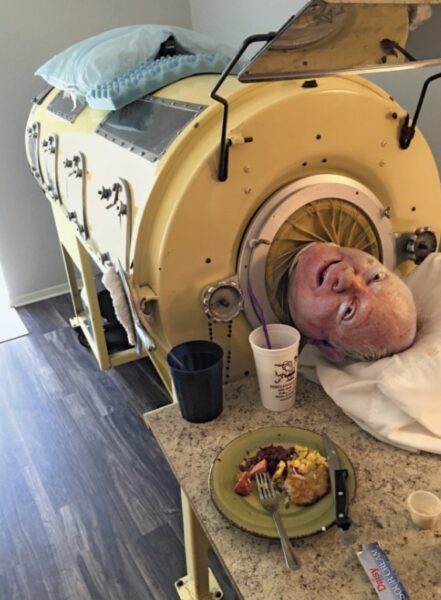
Let us honor Paul’s legacy by spreading his story among our friends and family, igniting the flames of inspiration in others and reminding them that within each of us lies the power to overcome adversity and achieve greatness.







